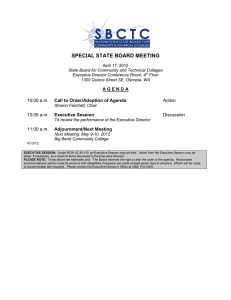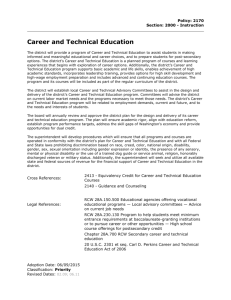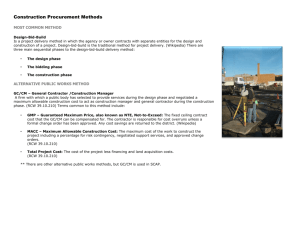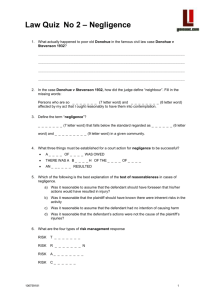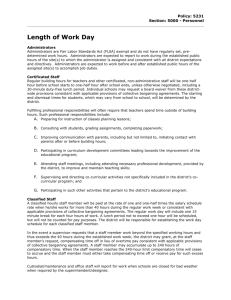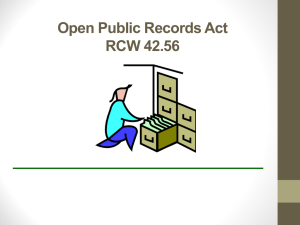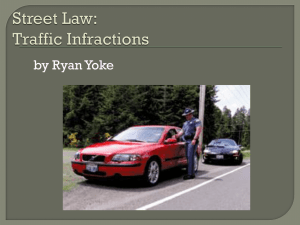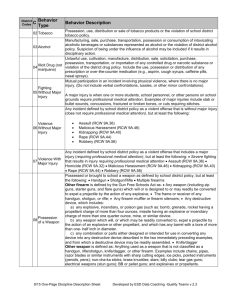90 Day Pre-Suit Notice for Professional Negligence Claims Ruled
advertisement
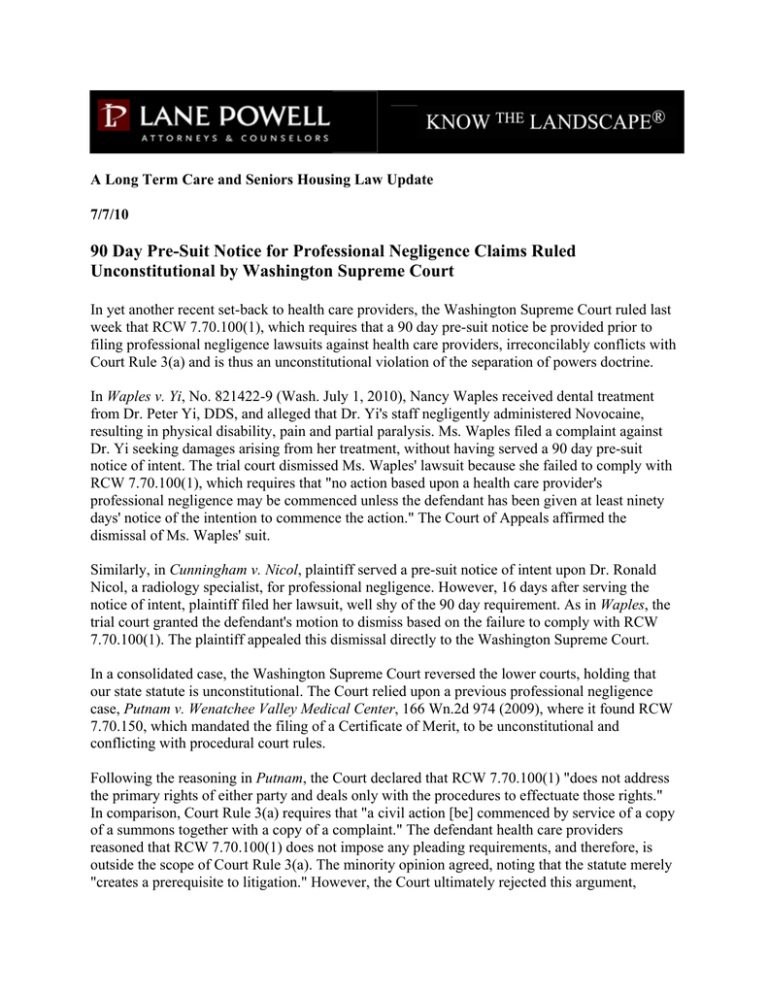
A Long Term Care and Seniors Housing Law Update 7/7/10 90 Day Pre-Suit Notice for Professional Negligence Claims Ruled Unconstitutional by Washington Supreme Court In yet another recent set-back to health care providers, the Washington Supreme Court ruled last week that RCW 7.70.100(1), which requires that a 90 day pre-suit notice be provided prior to filing professional negligence lawsuits against health care providers, irreconcilably conflicts with Court Rule 3(a) and is thus an unconstitutional violation of the separation of powers doctrine. In Waples v. Yi, No. 821422-9 (Wash. July 1, 2010), Nancy Waples received dental treatment from Dr. Peter Yi, DDS, and alleged that Dr. Yi's staff negligently administered Novocaine, resulting in physical disability, pain and partial paralysis. Ms. Waples filed a complaint against Dr. Yi seeking damages arising from her treatment, without having served a 90 day pre-suit notice of intent. The trial court dismissed Ms. Waples' lawsuit because she failed to comply with RCW 7.70.100(1), which requires that "no action based upon a health care provider's professional negligence may be commenced unless the defendant has been given at least ninety days' notice of the intention to commence the action." The Court of Appeals affirmed the dismissal of Ms. Waples' suit. Similarly, in Cunningham v. Nicol, plaintiff served a pre-suit notice of intent upon Dr. Ronald Nicol, a radiology specialist, for professional negligence. However, 16 days after serving the notice of intent, plaintiff filed her lawsuit, well shy of the 90 day requirement. As in Waples, the trial court granted the defendant's motion to dismiss based on the failure to comply with RCW 7.70.100(1). The plaintiff appealed this dismissal directly to the Washington Supreme Court. In a consolidated case, the Washington Supreme Court reversed the lower courts, holding that our state statute is unconstitutional. The Court relied upon a previous professional negligence case, Putnam v. Wenatchee Valley Medical Center, 166 Wn.2d 974 (2009), where it found RCW 7.70.150, which mandated the filing of a Certificate of Merit, to be unconstitutional and conflicting with procedural court rules. Following the reasoning in Putnam, the Court declared that RCW 7.70.100(1) "does not address the primary rights of either party and deals only with the procedures to effectuate those rights." In comparison, Court Rule 3(a) requires that "a civil action [be] commenced by service of a copy of a summons together with a copy of a complaint." The defendant health care providers reasoned that RCW 7.70.100(1) does not impose any pleading requirements, and therefore, is outside the scope of Court Rule 3(a). The minority opinion agreed, noting that the statute merely "creates a prerequisite to litigation." However, the Court ultimately rejected this argument, finding that the pre-suit notice requirement of RCW 7.70.100(1) fundamentally changes the procedures for commencing a professional negligence action against a health care provider in a way that cannot be harmonized with Court Rule 3(a). The Court declared RCW 7.7.0.100(1) unconstitutional, holding that it seeks to protect the separation of powers doctrine implicit in the State Constitution by maintaining "the judiciary's power to set court procedures." The Court's decision in Waples v. Yi defeats an attempt by the Washington legislature to ease litigation burdens on health care professionals. RCW 7.70.100(1) was designed to encourage settlements in cases that would otherwise result in litigation, and was part of a comprehensive effort in 2006 to reform our state's medical malpractice system. The striking down of this law creates the risk that we will see an increase in the number of lawsuits, including those that are non-meritorious, filed against health care providers and further exposing health care providers to potential liability. 206.223.7000 Seattle 503.778.2100 Portland longtermcareandseniorshousing@lanepowell.com www.lanepowell.com We provide the Long Term Care and Seniors Housing Hotsheet as a service to our clients, colleagues and friends. It is intended to be a source of general information, not an opinion or legal advice on any specific situation, and does not create an attorney-client relationship with our readers. If you would like more information regarding whether we may assist you in any particular matter, please contact one of our lawyers, using care not to provide us any confidential information until we have notified you in writing that there are no conflicts of interest and that we have agreed to represent you on the specific matter that is the subject of your inquiry. Copyright © 2010 Lane Powell PC www.lanepowell.com Seattle - Portland - Anchorage - Olympia - Tacoma - London 2
